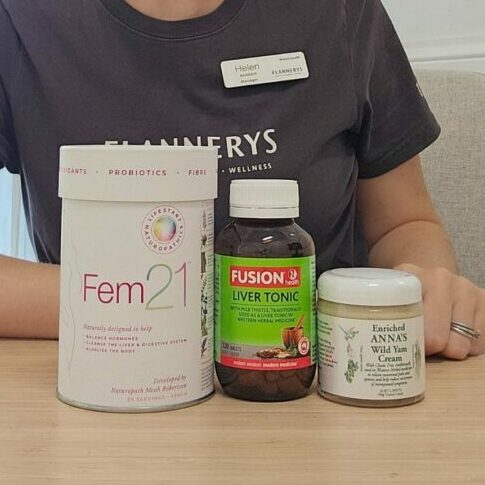
02.10.2018
Importance of cell renewal during sleep
Nadia Shaw, Naturopath
Renewal, restoration and revitalisation…there is nothing quite like a great night’s sleep to give your body these essential tools. Being unable to sleep can disrupt your day and lead to fatigue, poor concentration and memory, difficulty coping with stress, and even a loss of enjoyment or low mood.
Sleep deficiency contributors such as, insomnia, mothers with babies and shift workers can have far reaching consequences. Vehicle accidents are often caused by lack of sleep due to slow reflexes, irritability and a lack of concentration. Other detrimental effects of poor sleep can include lowered immunity, weight problems and depression.
Insomnia means having trouble with how well or how much you sleep. This can include difficulty falling asleep such as taking longer than 30 minutes to drift off and/or waking frequently or for extended periods at night. The causes of insomnia can be many and should be investigated and addressed with patience.
Sleep is a time of recovery; it is when you process the day’s activities and when your body repairs and heals. During the day we are bombarded with stress, noise and environmental pollutants, and we are also busy digesting our food and beverages. At night our bodies get a break and utilise this conserved energy to detox, repair and heal. The brain is busy processing our thoughts, learning and memories.
Recommendations for sleep time are usually around 6-9 hours. Generally, it should take between 10-25 minutes to wind down and fall asleep. Sleep times from 10pm to 6am are widely accepted as the perfect time to get adequate rest.
It is important to address some of the known drivers of problematic sleep, such as:
- Recent worry
- Anxiety & Stress
- Drinking alcohol at night
- Travel or unfamiliar surroundings
- Stimulants such as coffee
- Eating too much sugar
- Smoking
- Excessive screen or noise exposure
- Chronic pain
- Being a new parent
- Menopause
As a naturopath I offer suggestions for managing stress and eliminating poor sleep habits. These may include gentle measures to finish the day and prepare for sleep such as:
- Sipping herbal teas
- Diffusing essential oils such as lavender and Cedar wood
- Breathing exercises or progressive muscle relaxation techniques
- Reading a book
- Enjoying a bath with Epsom salts and essential oils
- Meditating
- Journaling to calm thoughts
- Setting an alarm
- Sticking to a routine
Often using herbal supplements to aid sleep health and employing traditional Chinese and Western herbs, may be beneficial. They have actions that can be gently sedating and promote a feeling of calm and wellbeing. Key herbs in this area are Lemon Balm, Zizyphus, Kava and Passionflower.
Diet and adequate protein consumption can also help build amino acids; foundation nutrients to make healthy neurotransmitters involved in regulating sleep. Sufficient healthy fats from fish, eggs, nuts and seeds are also important.
Targeted nutritional support may assist in aiding sleep health and magnesium is widely recommended, as it supports muscular health, adrenal health and the nervous system.
Speak with your health practitioner to identify and address triggers.
Share this post with your friends






